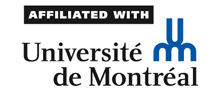The third component of the project involves a series of laboratory experiments. These are designed to complement the analyses of party strategies and voter behaviour by identifying the underlying causal mechanisms.
In most of the experiments the participants are invited to vote for one of the parties or candidates running in a mock election. These elections focus on many different aspects such as whether participants decide to vote or to abstain or whether they vote strategically. Typically, the treatments are the electoral system, the number of parties or candidates, the amount and nature of available information.
We will also be performing a number of experiments in which the participants will assume the role of party leaders who have to decide whether to coordinate or not with other parties, whether to attack their adversaries, and which policy positions to adopt.
We have also conducted some innovative on-line “quasi-experiments” where voters are invited to vote under different electoral rules. These mock elections have been conducted during actual election campaigns in France, Iceland, the Canadian provinces of Ontario and Quebec, and even during the selection of Pope Francis at the head of the Catholic Church.
Find out more about these ‘quasi-experiments’ at Vote au Pluriel, France, Vote au Pluriel, Québec, Forsetakosningar, Iceland, Vote for Pope, and EuroVotePlus.
Team members
This component of the study is under the joint direction of Professors Fred Cutler and Karine van der Straeten.
The following researchers are also involved: André Blais, Martial Foucault, Matt Golder, Thomas Gschwend, James Kuklinski, Jean-François Laslier, Claude Montmarquette, Benjamin Nyblade, Victoria Savalei, Laura Stephenson, and Jim Engle-Warnick.
